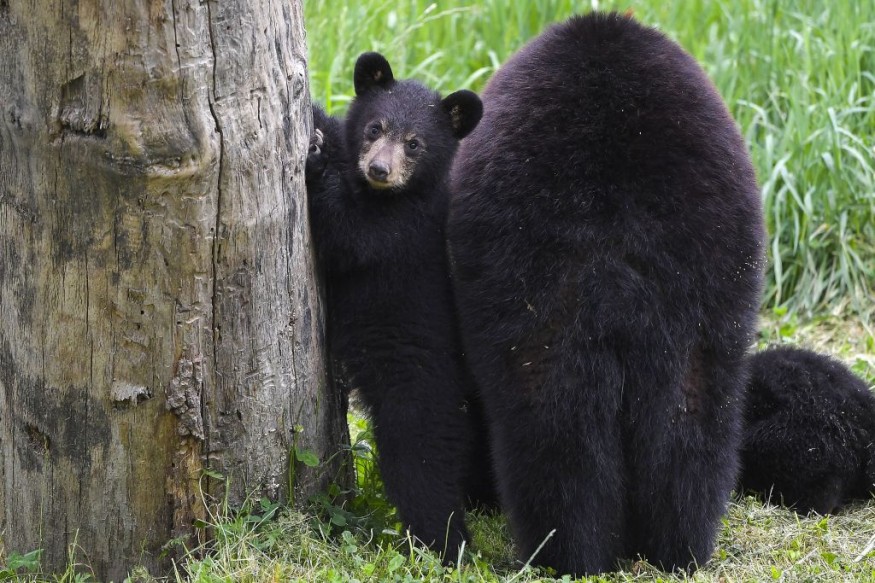Black bears have overtaken a Canadian city that was recently evacuated due to the fear of wildfires.

The animals have settled in Yellowknife, the capital of Canada's Northwest Territories.
The secluded town, located on the banks of Great Slave Lake, is home to approximately 20,000 people, the bulk of whom fled to safety on August 16 as multiple fast-moving fires approached the city limits.
The metropolis and several smaller adjacent communities were ordered to evacuate by the government.
Read Also : How Dangerous Are Black Bears?
Hungry bears
Several videos showed the bears exploring people's gardens, wandering in the street, foraging through garbage, and pursuing a man into a hotel.
According to James Williams, a Northwest Territory wildlife officer who has been patrolling the city in search of the bears, the bears are likely lured to the city because most people left their garbage cans full with debris, which means there's enough free food for the bears to eat.
However, he believes that the wildfires have also played a part in "pushing the bears" away from their normal territories and toward Yellowknife.
"There was such an up and go during the evacuation that a lot of people, it's not their fault, but their garbages were still full," Williams said in an interview. "Then after a few days, we did notice that there was a high number of bears coming in, and that could be due to the fires pushing them this way."
The number of bears observed in Yellowknife usually climbs around this time of the year.
In August, two bears were shot and killed by wildlife authorities in Yellowknife after they posed a threat to the safety of residents after one of them attempted to enter a house.
Around the same time last year, residents were urged to stay off municipal trails after encountering a number of bears, some of which showed little to no fear of humans.
Dealing with bears
Wildfires could change the way wildlife officers deal with bears.
Officers typically employ deterrents such as bear spray and rubber bullets to scare bears away from town. When that fails, bears are kidnapped and released outside the town.
However, the wildfires will make it more difficult to reintroduce the bears into the wild, according to Williams.
As a result, it is possible that more bears will have to be euthanized.
"Our number one priority is to protect life and property of the people and city of Yellowknife and as a territory as a whole, and when it comes down to it, sometimes we do have to dispatch some of these animals," he added.
Residents of Yellowknife, Ndil, Dettah, and the Ingraham Trail will be permitted to return home at noon on Wednesday, three weeks after the territory ordered their evacuation due to the wildfire.
The majority of essential personnel will begin returning home on Monday and Tuesday, according to a Facebook post from the city on Friday evening.
The general public's return date on Wednesday is subject to weather conditions.
Shane Thompson, MACA Minister, stated that the territorial government will try to ensure that basic services are available when residents return.
Related Article : Black Bear Devours Live Elk Calf in Yellowstone National Park
Related Video:
© 2025 NatureWorldNews.com All rights reserved. Do not reproduce without permission.





